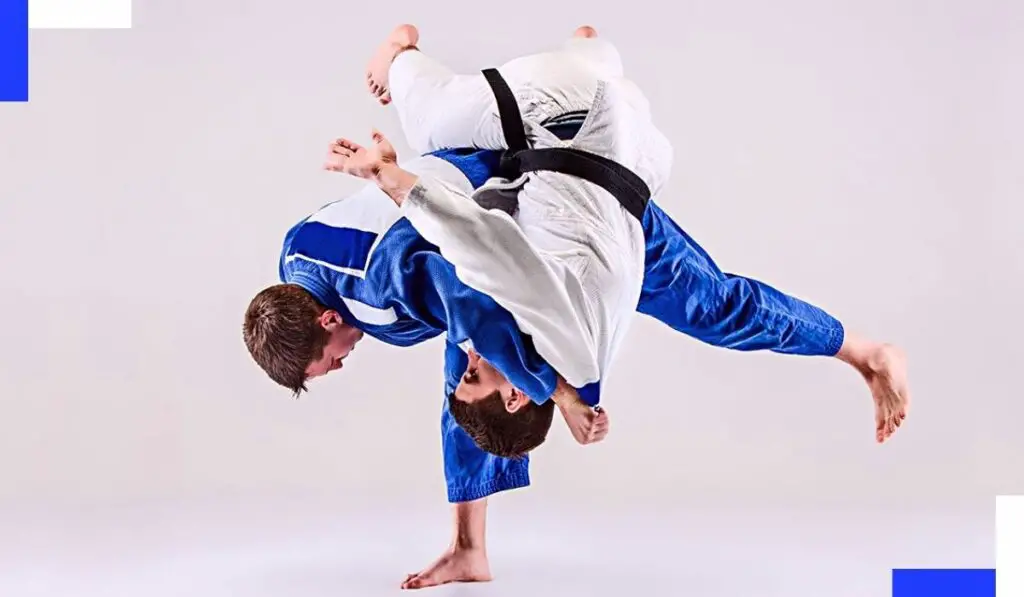Nutrition is a crucial factor in the performance and recovery of Jiu-Jitsu practitioners.
A well-balanced diet is essential for Jiu-Jitsu athletes. Proteins are crucial in repairing muscles, carbohydrates provide energy, and fats are necessary for hormone production. Vitamins and minerals support overall health, while hydration is critical to peak physical performance.
This article explores the fundamental nutritional strategies that can help martial artists optimize their training and competition performance. As a Jiu-Jitsu fighter, your body is your most valuable asset, and how you fuel it can make a significant difference in your performance on the mat. Stay tuned!
Importance of Nutrition for Jiu-Jitsu Fighters
Whether you are a beginner, a professional athlete, or a seasoned wrestler, your diet helps provide you with energy, stamina, strength, and adaptability for better performance during training and competition.
There isn’t any ideal diet plan for Jiu-jitsu fighters, but making minute changes in their diet and having a balanced portion control can significantly enhance your performance for the challenge. Martial arts is an athletic sport that requires a person to be physically and mentally fit.
Fueling up with proper nutrition is vital to achieving your goals and competing with your opponent. This article will discuss tips for fueling your Jiu-Jitsu fighting sessions.
Role of Macronutrients in BJJ Diet
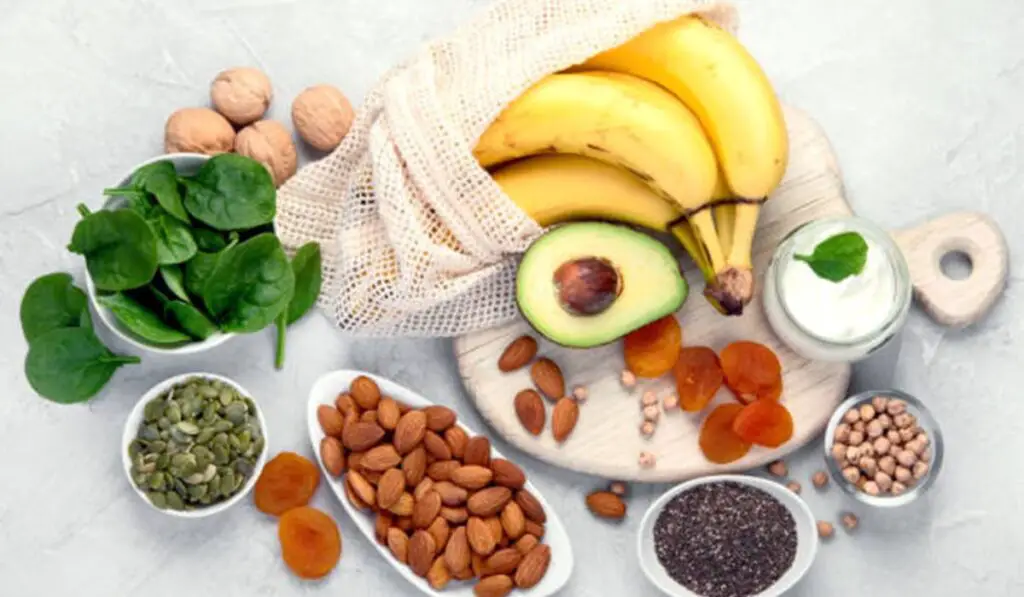
Carbohydrates
Carbs are a primary source of energy for your body. Fighters must consume enough carbohydrates to stay active and energized during grappling sessions. Carbs break down into glucose, which provides an instant boost of energy.
Excess glucose is stored in our muscles as glycogen to supply energy when needed. Jiu-Jitsu practitioners should consume foods with a low Glycemic Index, like complex carbohydrates, to slow glucose release in the body.
It keeps you full and lasts for extended periods. Foods with high glycemic index, like processed foods, give instant bursts of energy but last for a shorter time.
Protein
Proteins are the building blocks of muscles. A Jiu-jitsu athlete needs to include a large portion of protein in their diets. Protein intake helps muscle growth and recovery during and after intense training or competition.
Consuming almost 20 grams of protein pre and post-training or competition is recommended. The best protein sources for Jiu-Jitsu practitioners include fish, poultry, lean meat, eggs, dairy, beans, and tofu.
Fats
Fats provide a little more energy than carbohydrates. It increases the rate of muscle growth, balances hormones, and helps absorb nutrients in the body. An athlete should consume 20-30% nutrition from fats.
The slower breakdown of fats in the body maintains your energy levels for a prolonged period. Ensure you consume only mono- and polyunsaturated fats in nuts, vegetable oils, and seeds. Avoid foods rich in trans fat.
Impact of Essential Micronutrients
Along with the macronutrients, incorporating micronutrients in the diet is equally important, especially for Jiu-Jitsu practitioners to maintain their strength during competitions.
Iron
Iron is a vital nutrient for an athlete to perform well. It transports oxygen and helps in immune function and energy production. It is best to consume iron-rich foods on an empty stomach.
Vitamin B and C
Water-soluble vitamin C helps tissue growth and development, maintains bone, and heals wounds. In comparison, Vitamin B is an excellent energy source and boosts metabolism. Meat, dairy, legumes, leafy vegetables, and fruits are vitamin-rich foods.
Electrolytes
Minerals such as calcium, sodium, magnesium, and potassium maintain hydration levels in your body. These minerals are often lost due to sweating after an intense match. Restore these electrolytes by consuming sports drinks.
How Hydration Matters
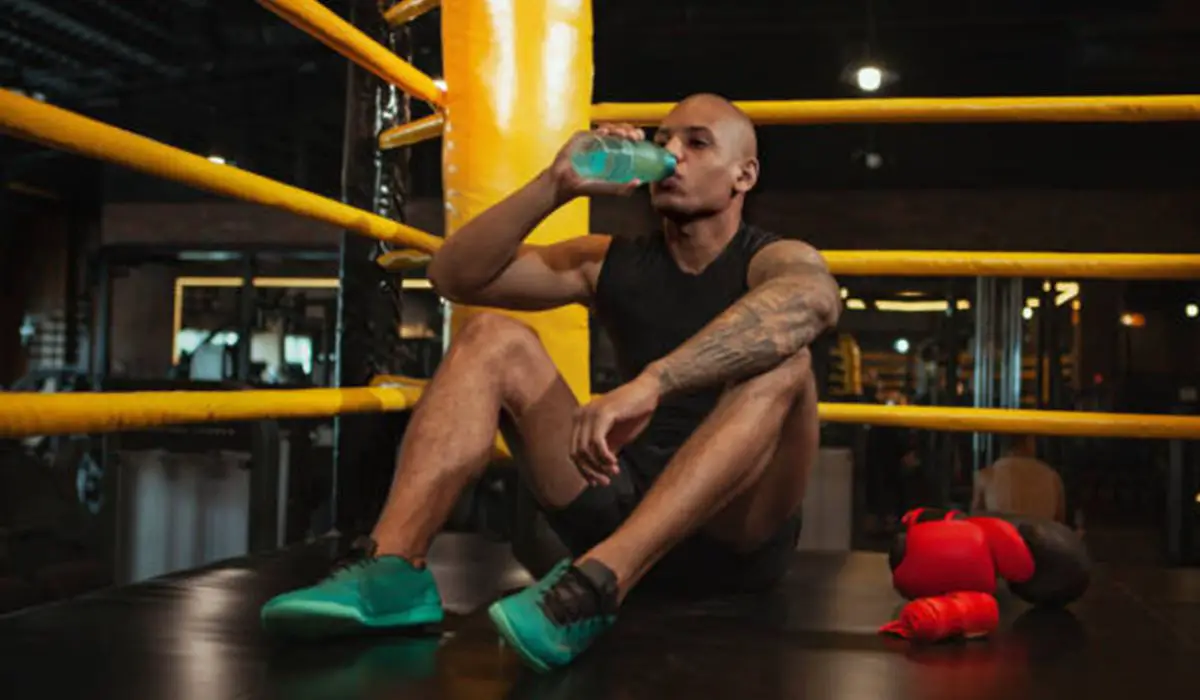
Keeping yourself hydrated is essential for all individuals, especially athletes. Jiu-Jitsu grapplers sweat a lot during their fight sessions or while training.
2-4% of their body weight loss is due to sweating, causing dehydration. This can lead to fatigue, increase injury risk, and negatively impact performance.
Stay hydrated throughout the day by consuming fluids containing electrolytes, such as coconut water or sports drinks.
Best and Worst Foods for a BJJ Fighter
Best Foods for a BJJ Fighter
- Whole grains: oats, quinoa, barley, brown rice, corn.
- Fruits: apples, dates, pears, bananas, avocado
- Lean meat: chicken, lamb, beef, fish, turkey
- Nuts and Seeds: walnuts, chia seeds, flax seeds, almonds, sunflower seeds
- Eggs
- Dairy
- Energy Drinks
- Supplements: creatine, β-alanine, protein powder, caffeine, sodium bicarbonate
- Leafy Vegetables
Worst Foods for a BJJ Fighter
- Fruit juices
- Alcohol
- Fast foods
- Bakery items
- Frozen half-cooked meat
What to Eat Before, During and After Competition
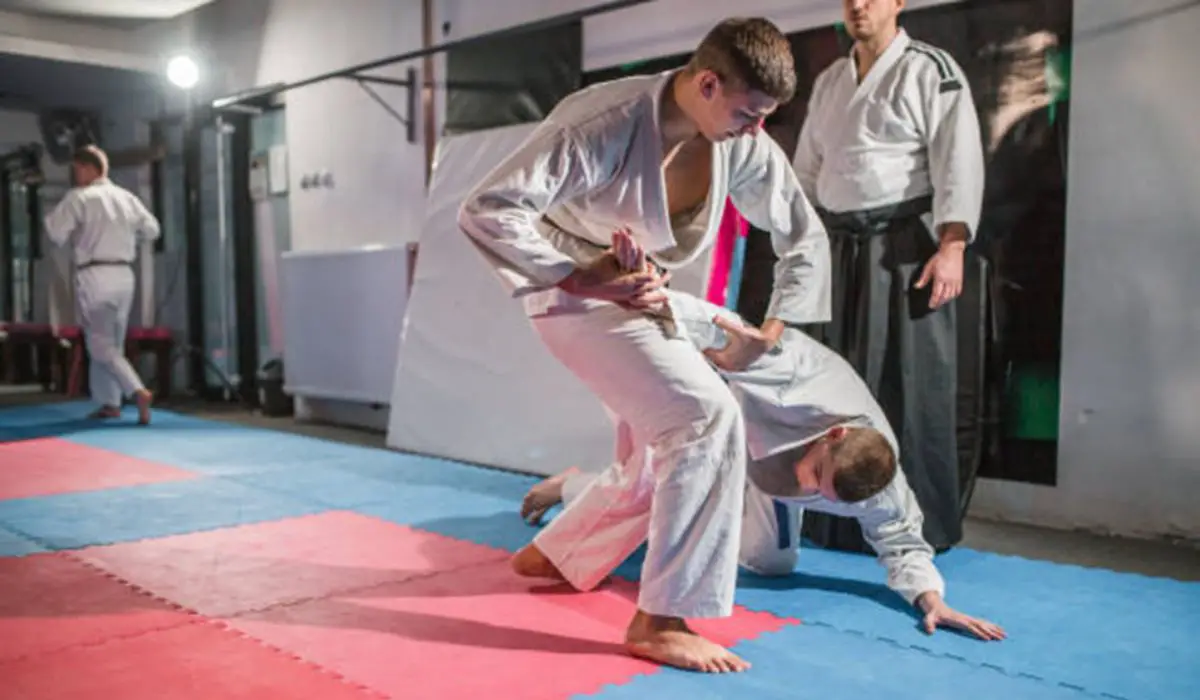
Athletes usually require more calories than those who have a sedentary lifestyle. A Jiu-jitsu practitioner should consume 2000-3000 kcal daily, depending on individual needs.
Pre-Competition
Eating foods with Low Glycemic Index, complex carbohydrates, and healthy fats is suggested before and about, as they sustain energy and keep you active on the mats. It is advised to take your meal 3 hours before the match so they get proper time to digest.
During Competition
Consume high Glycemic Index foods and sports drinks for an instant energy spark and quick recovery during a fight.
Post Competition
An ideal macronutrient for post-competition is protein. Protein helps in muscle recovery by decreasing muscle injury or soreness. Drinking a glass of low-fat milk or eating lean meat after a competition helps in recovery.
Generalized Daily Meal Plan for a Jiu-Jitsu Practitioner
A simple meal plan for a day is designed for a Jiu-Jitsu fighter:
- Breakfast: Omelet with vegetables, cheese, and mushrooms or French toast and peanut butter
- Snack: Fruits and nuts with Greek yogurt
- Lunch: Beef Bolognese or grilled chicken with a bowl of rice or a tortilla wrap
- Snack: Oats and fruit smoothie or energy bar
- Dinner: Steak with mashed potatoes and vegetables or salmon with a salad or burrito bowl with hummus.
All About Gracie’s Diet
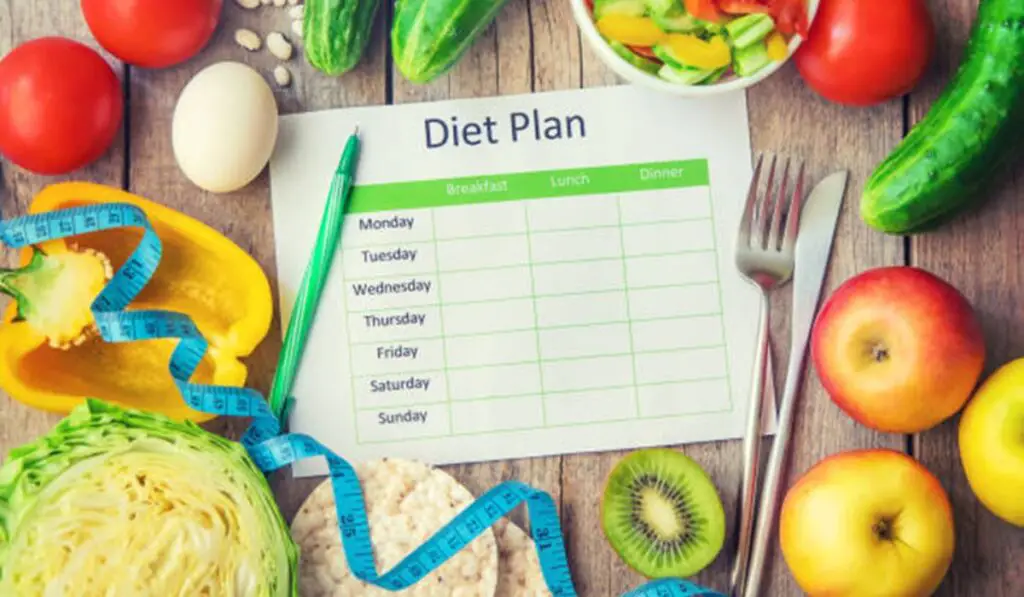
The great BJJ practitioner Carlos Gracie has designed a complete diet plan for jiu-jitsu fighters, which mainly focuses on the chemistry of different foods with one another.
He sorted foods into six categories and how to incorporate them into daily meals for proper digestion and preventing illness. He also suggested that there should be a 5-hour gap between meals. Gracie’s BJJ diet plan comprises of:
- Group A – vegetables, fats and proteins
- Group B – starches
- Group C – sweet fruits and creamy cheese
- Group D – acidic fruits
- Group E – raw bananas
- Group F – milk
Conclusion
In conclusion, for a Jiu-Jitsu practitioner, consuming a healthy and balanced diet is essential to perform their best on the mat. Complex carbohydrates, lean protein, unsaturated fats, and essential minerals and vitamins should be included in an athlete’s diet to build muscle strength, stamina, and recovery before and after a competition.
Besides proper nutrition, athletes should drink adequate water and other energy drinks throughout the day for better performance and healing.
Consider a dietician or an experienced sports nutritionist to get a personalized diet plan according to your body requirements that meet your competition goals.

